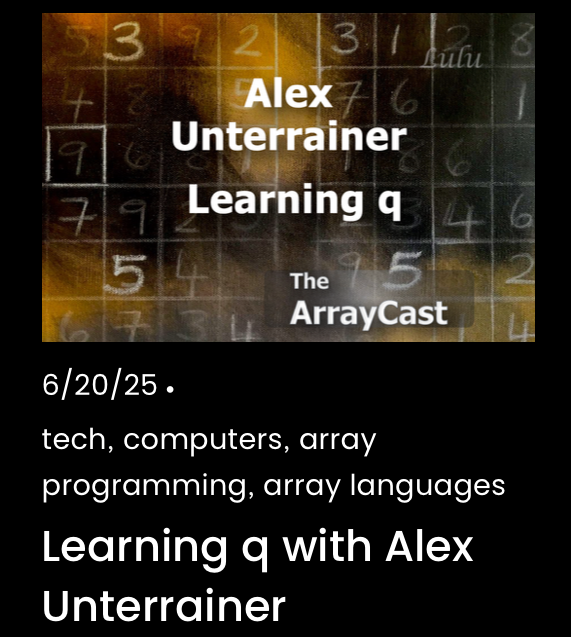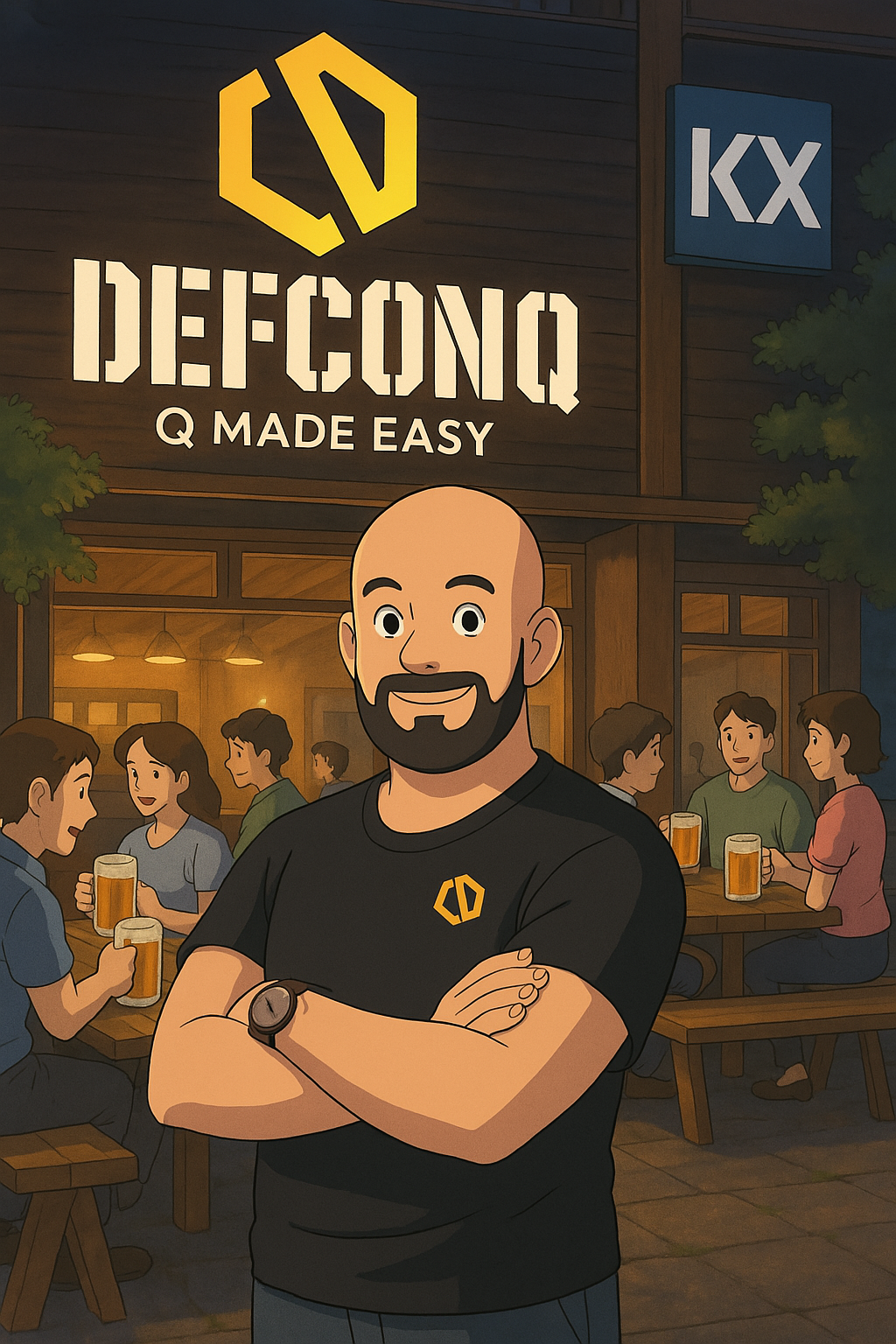The Array Cast - Where Code Meets Curiosity
Last week, I had the honour of making my first solo appearance on the ArrayCast podcast, a show dedicated to everything array programming, and a tribute to the legacy of Kenneth E. Iverson, the legendary creator of APL. While I’ve previously been part of a group discussion during last year’s Iverson College event, this was my first time flying solo.
As many of you know, KDB/Q is a direct descendant of APL, so it naturally finds a regular place in ArrayCast conversations. Over the years, the podcast has featured some of the most respected names in the KDB/Q community, including Nick Psaris, Attila Vrabecz, Jonny Press and Stevan Apter, which makes it an even greater privilege to join this esteemed list of guests and contribute to such a meaningful initiative.






